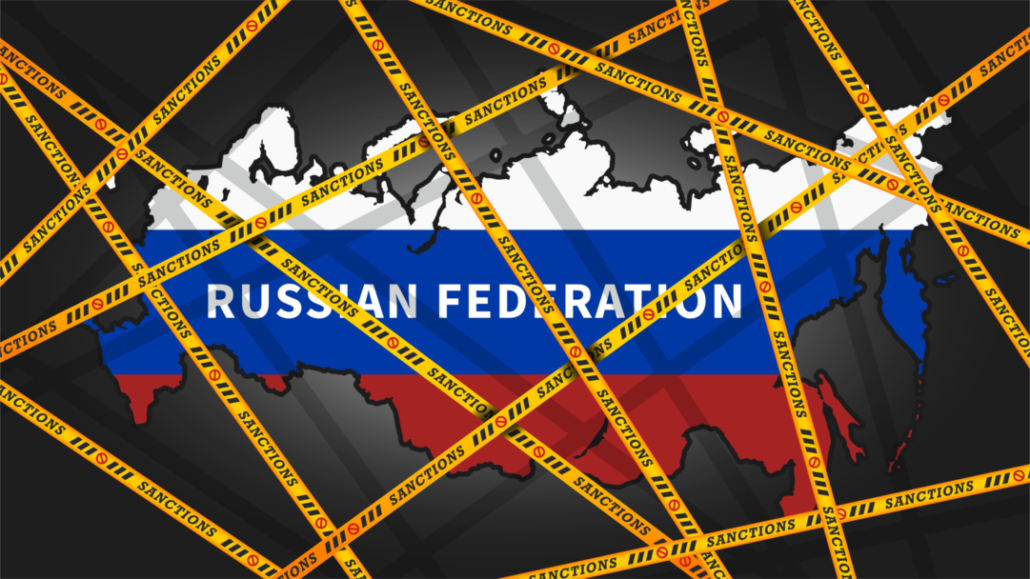#EconomicPolicy
#EconomicPolicy77
Contacts:
Ulrich Schetter
Harvard Kennedy School
ulrich_schetter@hks.harvard.edu
Strengthening sanctions on exports to Russia
New evidence on the impact of improved targeting and coordination
The list of sanctions on Russia following its invasion of Ukraine has left the country too many supply alternatives, according to researchers at the Growth Lab at Harvard Kennedy School. Ricardo Hausmann, Ulrich Schetter and Muhammed Yildirim believe that a more coordinated approach could increase the cost to Russia by about 60% without any measurable difference to the sanctioning countries.
Their new study looks at more than 5,000 products imported into the Russian market, their relative importance to the Russian economy, and the combined market share of sanctioning countries. The results support a more effective sanctions design that can have a relative GDP effect on Russia 100 times larger than on the sanctioning countries. The researchers also see scope for increasing Russia’s losses by targeting more products.
The research team conclude: ‘The Ukraine war is being fought both on the battlefield and on the economic front, with millions making sacrifices to protect the country and its democracy. We must support them by ensuring that trade sanctions are as effective as they can be.’
Russia’s invasion of Ukraine has sparked a military and humanitarian crisis not seen in Europe since the end of the Second World War. And while the West has refused to be drawn into a military engagement, it has supported Ukraine with financing and military aid, and attempted to isolate Russia diplomatically and economically.
Sanctions have been crucial to the attempt to inflict economic burden on Russia. But while the sanctions imposed on Russia by an unexpectedly compact Western coalition have had an effect, they have not had the backbreaking impact they were expected to –Russian GDP is estimated to have declined by about 3% in 2022 while the value of the Rouble has returned to its pre-crisis levels.
In part, Russia’s relative economic resilience has been due to its oil and gas exports, especially to the European market. But these researchers believe that the list of sanctions on Russia has left the country too many supply alternatives, and that a more coordinated approach could increase the cost to Russia by about 60% without any measurable difference to the sanctioning countries.
Following the Russian invasion of Ukraine in February 2022, and the subsequent rollout of sanctions by Western countries, especially members of the G-7 and the European Union (EU), the authors sought to understand how sanctions were affecting the Russian economy and if they could be better engineered to have greater impact.
They focused on sanctions on exports to Russia as these make it possible to exploit an important asymmetry in the trade relationship between Russia and the West: the coalition of Western countries accounted for about 54% of Russian imports prior to the invasion, with the EU alone accounting for about 41%. In contrast, Russia accounted for a much smaller share of around 2% of European exports. This implies that sanctions on exports to Russia can cut off critical supplies for the Russian economy with little impact on coalition exports.
Using a granular approach, the research team looked at more than 5,000 products imported into the Russian market, their relative importance to the Russian economy, and the combined market share of sanctioning countries.
They found that while the sanctioned products were, in fact, important to the Russian economy, often the market share controlled by the sanctioning countries was not large, allowing Russia to substitute goods from other countries for American or European goods. Moreover, while there has been impressive coordination on many fronts, less than 50% of all products sanctioned by the United States or the EU are restricted by both.
The researchers also found a bias toward capital goods – for example, machinery or airplanes – which, besides coordination problems, can also take time to have an impact because Russia can use pre-existing stocks. The researchers devised a list of products – such as car transmissions or food additives – that could have an immediate impact.
The significance of the new approach is that it looks at the granular, product-level data allowing a more effective sanctions design that can have a relative GDP effect on Russia 100 times larger than on the sanctioning countries. The researchers also see scope for increasing Russia’s losses by targeting more products.
‘The Ukraine war is being fought both on the battlefield and on the economic front, with millions making sacrifices to protect the country and its democracy’, the authors wrote in a recent commentary. ‘We must support them by ensuring that trade sanctions are as effective as they can be.’
On the Design of Effective Sanctions: The Case of Bans on Exports to Russia
Authors:
Ricardo Hausmann (Harvard Kennedy School)
Ulrich Schetter (Harvard University)
Muhammed Yildirim (Koç University & Harvard University)







